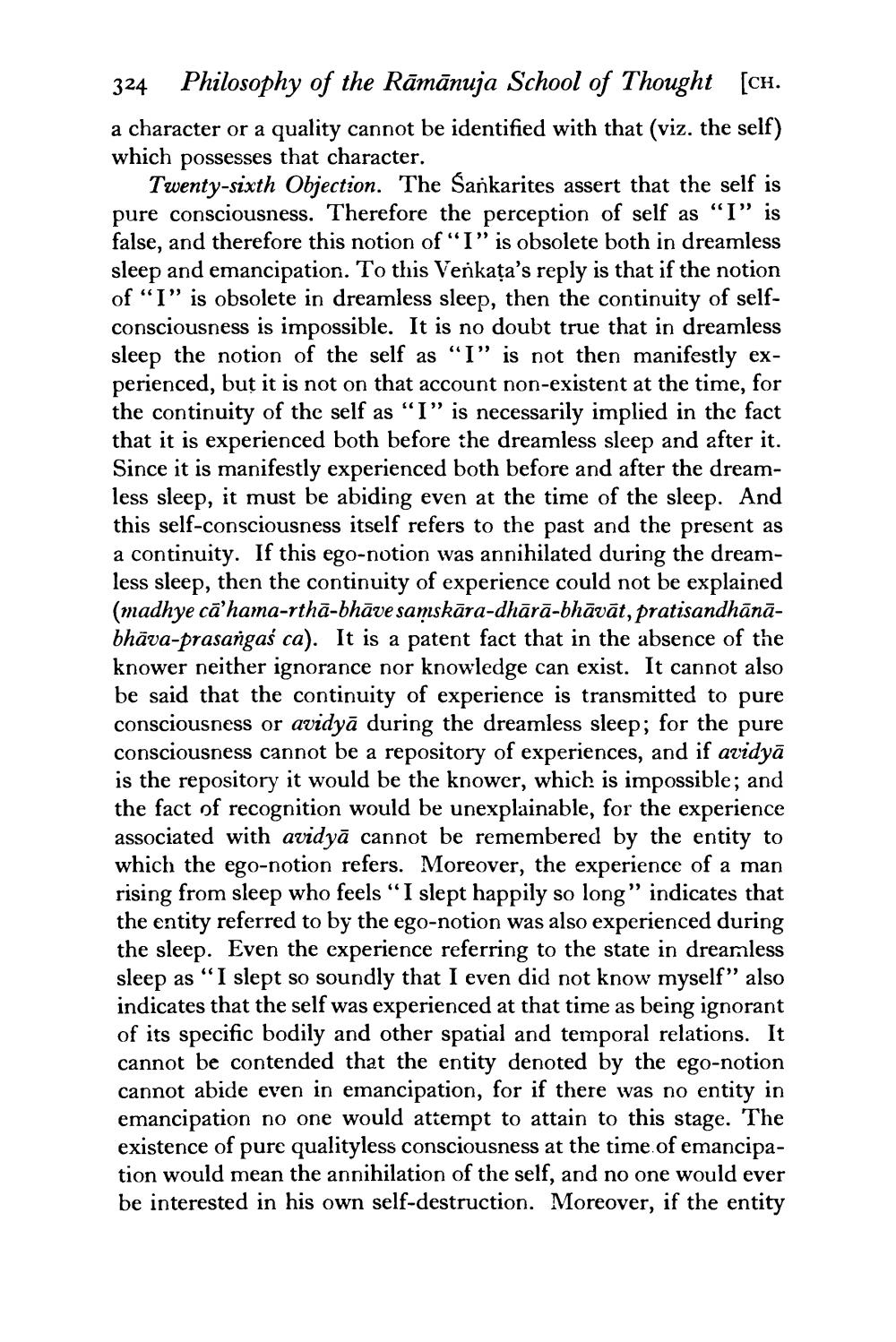________________
324 Philosophy of the Rāmānuja School of Thought [CH. a character or a quality cannot be identified with that (viz. the self) which possesses that character.
Twenty-sixth Objection. The Sankarites assert that the self is pure consciousness. Therefore the perception of self as “I” is false, and therefore this notion of “I” is obsolete both in dreamless sleep and emancipation. To this Verkața's reply is that if the notion of “I” is obsolete in dreamless sleep, then the continuity of selfconsciousness is impossible. It is no doubt true that in dreamless sleep the notion of the self as “I” is not then manifestly experienced, but it is not on that account non-existent at the time, for the continuity of the self as “I” is necessarily implied in the fact that it is experienced both before the dreamless sleep and after it. Since it is manifestly experienced both before and after the dreamless sleep, it must be abiding even at the time of the sleep. And this self-consciousness itself refers to the past and the present as a continuity. If this ego-notion was annihilated during the dreamless sleep, then the continuity of experience could not be explained (madhye cā'hama-rthā-bhāve samskāra-dhārā-bhāvāt, pratisandhānābhāva-prasangaś ca). It is a patent fact that in the absence of the knower neither ignorance nor knowledge can exist. It cannot also be said that the continuity of experience is transmitted to pure consciousness or avidyā during the dreamless sleep; for the pure consciousness cannot be a repository of experiences, and if avidyā is the repository it would be the knower, which is impossible; and the fact of recognition would be unexplainable, for the experience associated with avidyā cannot be remembered by the entity to which the ego-notion refers. Moreover, the experience of a man rising from sleep who feels “I slept happily so long” indicates that the entity referred to by the ego-notion was also experienced during the sleep. Even the experience referring to the state in dreamless sleep as “I slept so soundly that I even did not know myself” also indicates that the self was experienced at that time as being ignorant of its specific bodily and other spatial and temporal relations. It cannot be contended that the entity denoted by the ego-notion cannot abide even in emancipation, for if there was no entity in emancipation no one would attempt to attain to this stage. The existence of pure qualityless consciousness at the time of emancipation would mean the annihilation of the self, and no one would ever be interested in his own self-destruction. Moreover, if the entity




